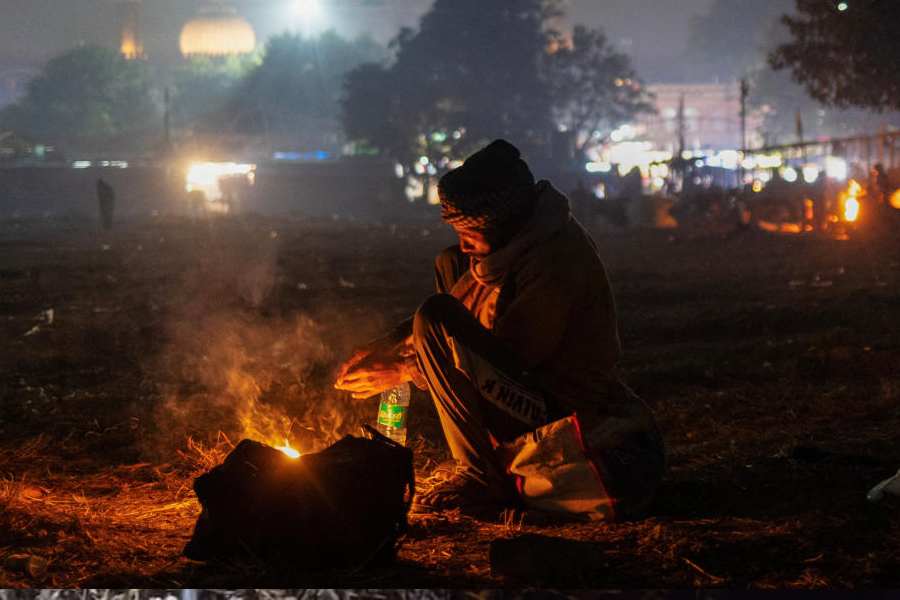 |
| A video film being shot in Imphal |
Imphal, April 9: Manipur?s first 35 mm feature film since 2002 is about to be consigned to a dusty archive without a Friday release because the 40-odd theatres in the state no longer have the equipment to screen a conventional full-length film.
Rajen Khuman and his wife R.K. Geetanjali dared to dream about making Ayukki Singarei (Daffodil in the morning) despite financial bottlenecks and the knowledge that theatres have only been screening digital video films since militants banned Bollywood fare a decade ago.
A disillusioned Geetanjali today said she and her husband were in debt and clueless about what to do. ?We spent Rs 12 lakh on the film, but not a single cinema hall in Imphal and elsewhere in the state is willing to screen it,? she said.
The couple?s predicament mirrors the plight of the Manipuri film industry, which has produced a master like Aribam Syam Sharma but now survives by churning out only digital video films. Sharma, who has won 11 national awards and a French Grand Prix, is campaigning for the entry of video films into the competition sections of all national and international festivals in India.
Geetanjali said she never thought it would be so difficult to release Ayukki Singarei. ?We got the mandatory certificate from the Central Board of Film Certification office in Guwahati a year ago. It has since been a futile struggle to release the film. We even requested Governor S.S. Sidhu and chief minister Okram Ibobi Singh, who is the chairperson of the Manipur Film Development Corporation, to bail us out. But neither of them responded.?
A senior employee of one of Imphal?s popular cinemas said only films in the digital video format were commercially viable. ?We disposed of the equipment required to screen 35 mm films long ago. We now have only a projector for video films.?
The last Manipuri feature film that had a formal release was Cheina (Pain) by Oken Amakcham. The militant-imposed ban on screening Hindi films led to the growth of the digital video genre, its USP being the relatively low production cost.
For Rajen and Geetanjali, the refusal of theatres to screen their film means the death of cinema in Manipur. In their appeal to the government, the filmmakers had argued that screening video films in theatres was a violation of the Cinematography Act of 1952.
?I borrowed Rs 5 lakh from friends and relatives and mortgaged land to complete the film. I am shattered now. The interest on the loan has become a big burden,? Geetanjali said.
A sympathetic member of the state?s entertainment fraternity said there was little anybody except the government could do to help the couple. ?The daffodil has wilted before it could bloom,? he said.










